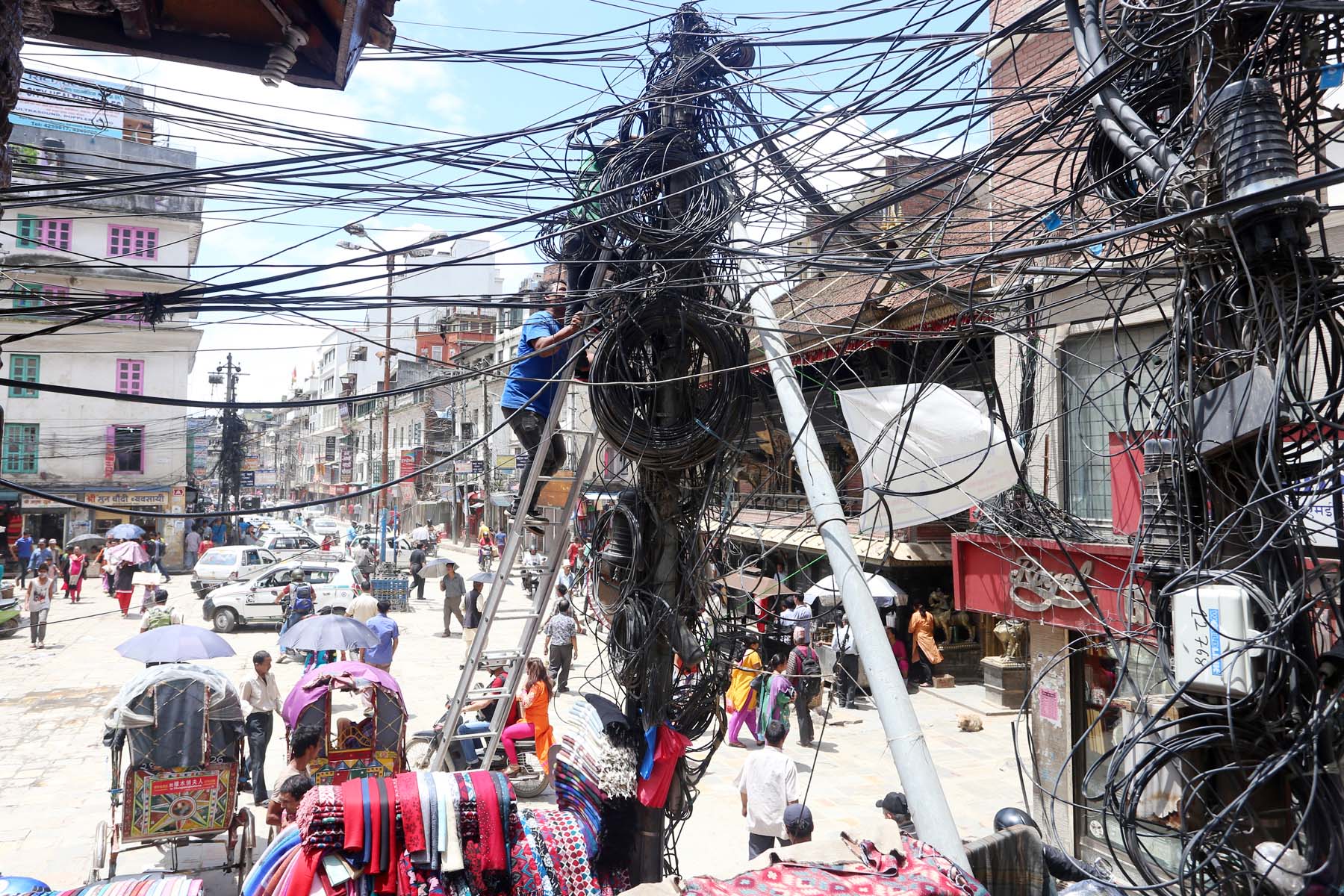
As Prime Minister Pushpa Kamal Dahal inaugurated the Nepal Investment Summit 2024 in Kathmandu, aimed at attracting foreign investors, domestic investors expressed frustration over inconsistent government policies.
Private electricity producers have long cited bureaucratic delays and extortion, and now, Internet Service Providers (ISPs) are also in conflict with the government. The Nepal Telecommunication Authority (NTA) and the Ministry of Information and Communication accuse ISPs of failing to contribute to the Rural Telecommunication Fund and pay their due royalties. Consequently, ISPs have been blocked from exchanging Indian currency needed to pay for bandwidth.
“Providers like Tata and Airtel might cut off services due to delayed payments, as the government hasn't facilitated the currency exchange,” says Sudhir Parajuli of the Internet Service Providers’ Association of Nepal (ISPAN).
Nepal’s ISPs owe up to Rs 5 billion to Indian bandwidth providers, causing increasing anxiety about payments. The NTA must recommend the Rastra Bank facilitate this currency exchange, but no recommendation has been made for five months.
The NTA asserts that ISPs are required to allocate 2% of their income to the Rural Telecommunication Fund and pay a 4% royalty to the government. An internal ministry investigation revealed that ISPs owe Rs 2.5 billion in unpaid fees and royalties.
ISPs, however, argue that the government has imposed additional taxes and royalties contrary to a five-year-old agreement. “The government is trying to squeeze us, violating previous agreements. The Communication Ministry created this issue and must resolve it,” Parajuli insists.
Following a decline in tax revenue during the pandemic, the government unilaterally increased the tax on ISPs to 13%, which ISPs opposed, arguing the cost would burden consumers. A compromise was reached, eliminating taxes on maintenance and customer service while capping the Rural Telecommunication Fund contribution at 2% and the royalty at 4%. This meant only Rs 500 of a Rs 1,000 monthly internet bill would be taxed.
In May 2019, the Cabinet decided there would be no tax on installation equipment like routers. An amendment to the Telecommunication Regulation allowed fixed wired broadband providers to allocate 50% of their fees as maintenance costs. However, the Accountant General’s office questioned this, despite clearance from the Parliamentary Public Accounts Committee.
Despite these agreements, the NTA asked ISPs in 2019 to pay higher royalties and taxes, prompting Worldlink to take the matter to the Supreme Court, which issued an interim verdict in favor of the ISPs.
“The Communication Ministry’s actions violate laws, previous government decisions, and the Parliamentary committee’s stance, jeopardizing affordable internet access,” Parajuli says.
The central issue is whether maintenance fees should be taxed for the Rural Telecommunication Fund and royalties. ISPs argue it should not be, based on prior agreements, while the ministry disagrees. The Telecommunication Regulation 1997's definition of ‘nett income’ includes deposit, service fee, VAT, and other taxes, which ISPs interpret as excluding maintenance fees from taxation.
“The ISPs were exempted from paying service tax on maintenance fees, but not from royalties and the Rural Telecommunication Fund,” says NTA’s Santosh Poudel. “The ISPs have no choice but to comply.”
A senior ISP executive lamented, “The government’s attempts to forcefully extract money from us are not conducive to investment. They’re hosting an investment summit while simultaneously extorting businesses. At this rate, we might all shut down.”
The British Embassy has also raised concerns with Finance Minister Barsha Man Pun regarding government pressure on ISPs. The British government’s CDC Group has invested Rs 1.35 billion in Worldlink.
A former civil servant identified the root of the problem as the government’s 2019 decision to double-tax ISPs already paying royalties. “The government’s attempt to resolve the dispute by taxing ISPs without burdening customers initiated the current conflict.”
NTA’s Poudel noted that since the matter is sub judice, further explanation is unnecessary: “The ball is in the courts.”
The Supreme Court will hear cases filed by Worldlink and Subisu on May 28 and 29.
News From The Same Author
View all
Muktikot's Long Wait for Promised Liberation
Two decades after Maoists vowed prosperity, the Dalit village of Muktikot in Nepal remains neglected. Years ago, during Nepal's civil conflict, the Maoists promised Man Bahadur Bishwakarma and the Dalit residents of Muktikot a future of freedom and prosperity.
|
Sunak Commits to Strengthening UK-Nepal Relations with Climate and Economic Aid
During a recent event at 10 Downing Street commemorating a century of Nepal-Britain relations, Prime Minister Rishi Sunak announced a commitment to assist Nepal in addressing climate change and boosting economic ties.. British Prime Minister Rishi Sunak has promised increased support for Nepal, focusing on climate change mitigation and economic enhancement.
|